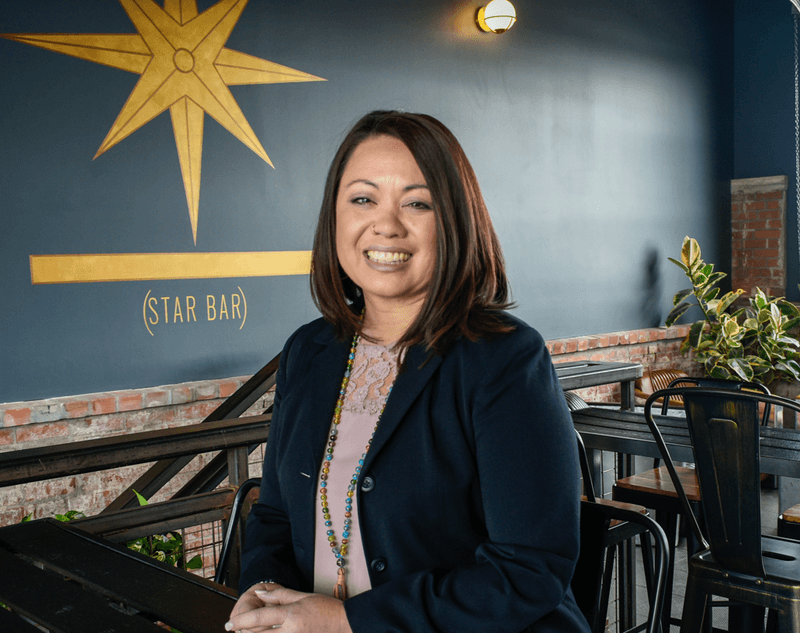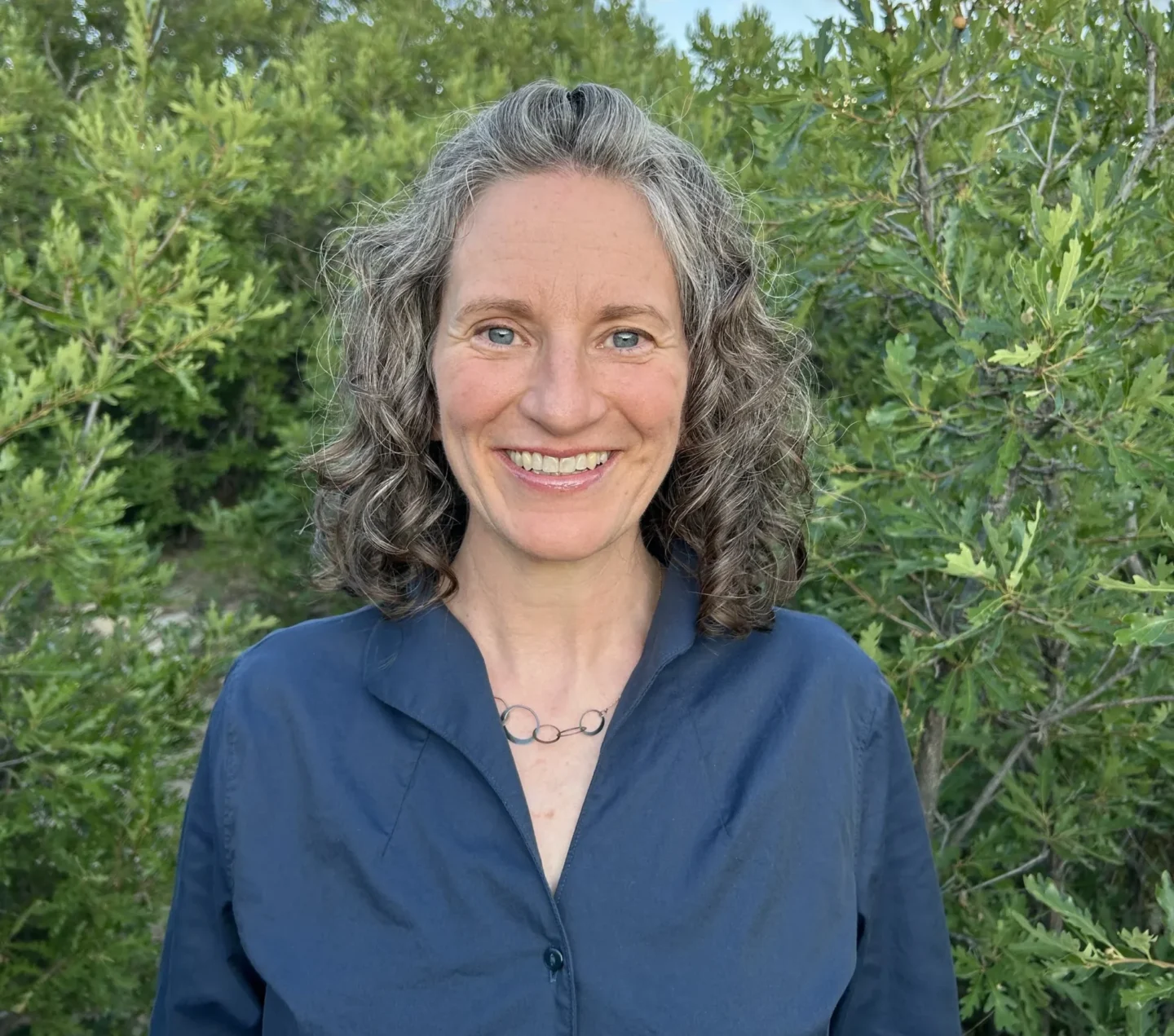Written for NAMI Colorado Springs by Rayna Serrato
We often think of the holiday season as a time to give, a time to celebrate family and community, and a source of hope and joy. But it can also bring pain for those experiencing grief, anxiety and loneliness.
According to the American Psychological Association, around 90 percent of people say the holidays are stressful. Many of them cite monetary concerns, familial conflict, and missing loved ones. Forty-three percent of folks say that the stress from the holidays inhibits their ability to enjoy the holidays, and 38 percent feel pressure to make things perfect.

With the season also comes seasonal depression, or seasonal affective disorder, for millions of people. The shorter, colder days, the reduction in sunlight hours, and the stillness of the season can cause people to get caught up in unresolved emotions.
So there are plenty of reasons why someone might not feel festive at this time of year. We recently talked with two local mental health professionals about what to do if you’re in that situation.

Holiday stress management tips, with Cass Walton
Cass Walton is executive director of Suicide Prevention Partnership, which provides donation-based services to the community that support reduction in suicide. “We provide suicide prevention trainings awareness and outreach through resource tables and different kinds of informational presentations,” Cass says. “[… At] our center we provide individual and group therapy, peer support services and resource navigation.”
Many of those she sees are struggling with other feelings of loneliness, especially as they see others “making big memories” with family and friends.
“If that’s an area that they don’t have a lot of resources — maybe they are new to town and don’t have family, or maybe they are experiencing an argument with their friends, or just for some reason, they’re feeling lonely — then we can see it become a really hard time for that person.”
Whatever the cause of the difficult feelings, Cass says, you shouldn’t feel that you have to fake that things are perfect. “Holidays come around every year,” she says, “so if you need to give yourself self-compassion and take a break and say no to some invitations, that’s OK.”
What she does urge, though, is identifying some replacement activities when saying “no” to holiday invites. Those could include self-care rituals and some calm forms of entertainment, like calling a friend or family member. It’s “not using or allowing your lack of energy or lack of investment in the holidays to be justification for isolation,” she says. “Because when we most feel like turning inwards, that’s a human response to things, [but] most often that is the signal to ourselves that we need to be reaching out and intentionally connecting with people outside of ourselves.”
At the other end of the spectrum, Cass encourages those who are in a good place to look out for others who may need support and to serve as “includers.” She says, “I love it when someone invites me, or makes me feel included. That can really brighten someone’s day.”
Bringing yourself back to feeling grounded, with Amy Day

Stress can get locked away in our minds. Can it live even longer in our bodies?
Amy Day specializes in trauma-sensitive yoga and somatic experiencing. She describes stress as something that can disrupt regulation within our bodies.
“The natural flow or synchronicity of life has stopped,” she says. “There isn’t this sense of natural rhythms of sleep and wake, or ability to be present in the moment, or focus. Because they’re preoccupied with either this ongoing long-term experience or this one-time experience that really disrupted their sense of self, their sense of being able to be in the flow of their life and their body.”
Trauma-sensitive yoga includes softer guidelines for movement and the freedom to veer from the program to simply let your body guide you through what comes up, allowing stress to dissipate.
For those who may not have access to these services when they feel emotions arise, Amy offers a few grounding and mindfulness techniques.
- If available, find a safe and trustworthy person with whom to discuss these feelings — someone who may be able to offer comfort and strength.
- Take a break, whether it is a short break to the bathroom or a walk outside. Take slow steps, feeling your feet in your shoes or the distribution of weight. In general, takenote of what your body feels and what it is coming in contact with.
- Shift weight from one foot to another, or cross your arms from one shoulder to another and squeeze. Anything that can use both right and left sides of the body will help bring equilibrium to the brain.
- Let your eyes wander and take notice of what they are drawn to, whether it is a particular object, color or another noticeable feature.
- Engage the center of your body by drinking a glass of water or breathing a long, deep breath in and out. See how deep you can draw a breath in and how long you can extend that same breath.
- If you’re feeling stress, bring your attention to something that is less stressful for a few moments. Return to the stressor, then go back to the pleasant thought or sensation. Repeat until you feel calm, letting your mind work “like a pendulum” to help with regulation.
As for the feelings of apprehension and disconnectedness around this time of year, Amy says to embrace what feelings are coming up. “Give yourself permission to be disoriented or disconnected, and to maybe not do what’s expected of you during the holidays … permission to be exactly where you are — because, turns out, that’s where you are. So, you don’t have to fight it.”
Connecting hope to the holidays
Ultimately, the focus of the holidays is community and connection. Despite the challenge, there is still much beauty and hope to be experienced. Cass marvels at the positivity that comes out of being “proactive” and finding community in others who may be struggling as well.
“Here at Suicide Prevention Partnership, we have a lot of suicide survivors who have connected,” she says. “I just love to hear stories of them connecting, having meals where they’re honoring their loved ones by bringing their loved one’s favorite dishes.”
Though isolation abounds, she adds, community is always closer than it appears.
“When I look around our community, there’s so many opportunities for that — so many different events that folks can get involved in and attend, and so many different places where you can go to find the connection that you need.”
If you or someone you know may be struggling with thoughts of suicide, contact the 988 suicide hotline.
If you could use a place to connect, remember that NAMI offers peer-support services for those who live with mental illness and for family members. You can register for any of these programs here.
While the holidays can feel hard and lonely, getting through them is a shared experience. You are not alone.